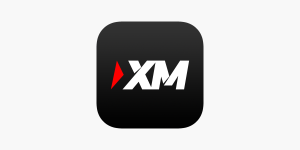
XM
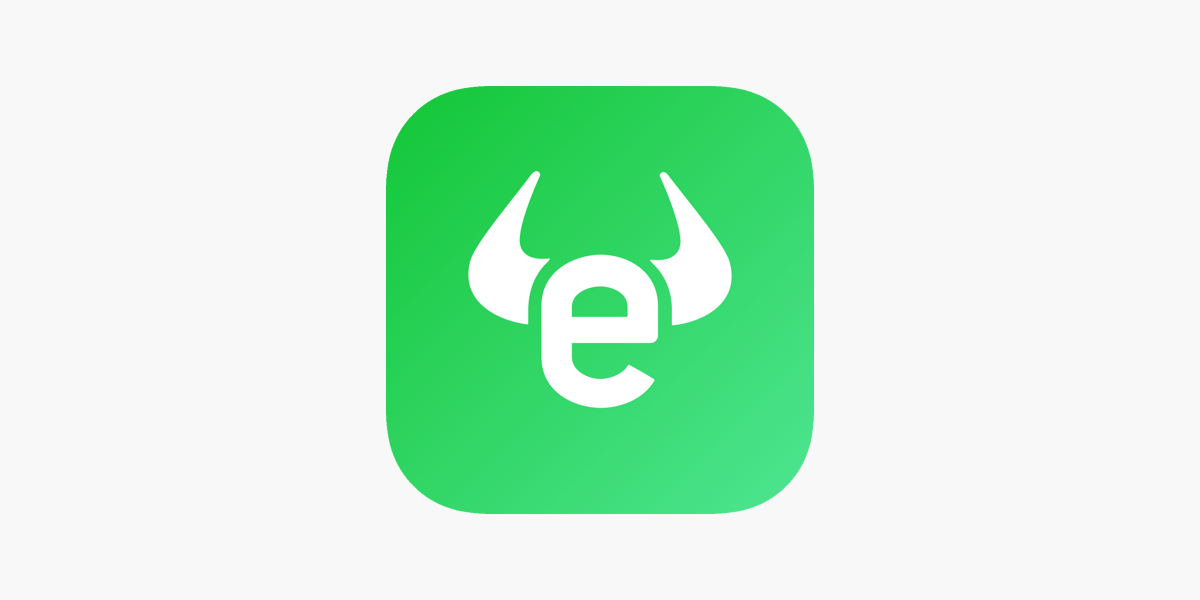
eToro
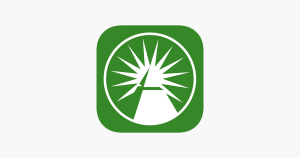
Fidelity

Webull

Robinhood
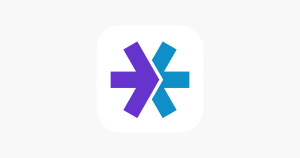
E*TRADE

Interactive Brokers
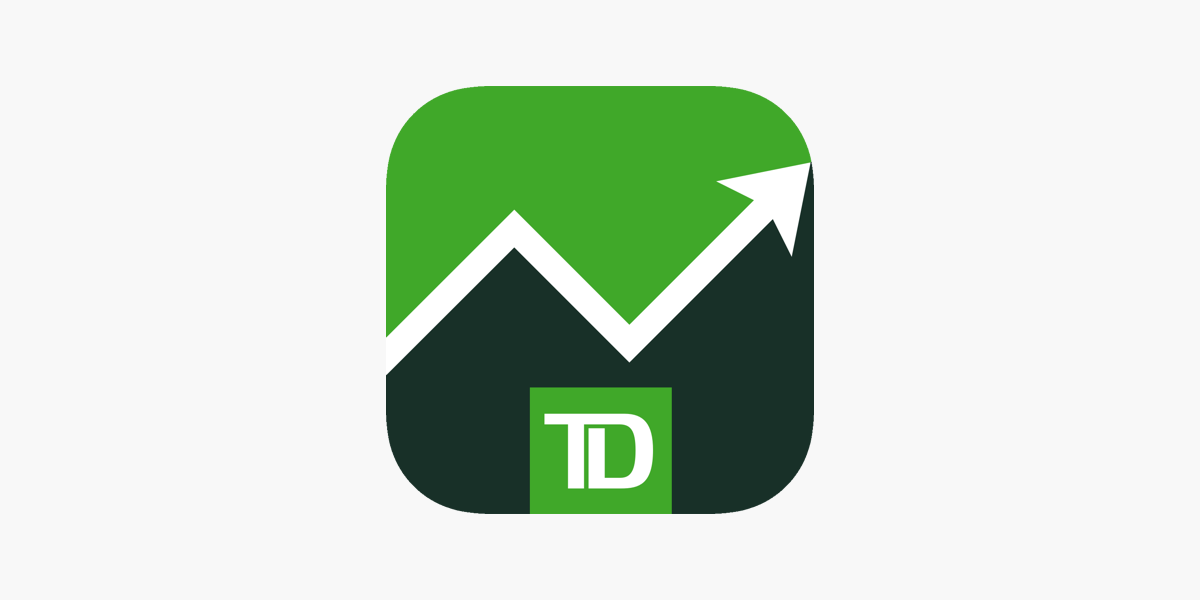
TD Ameritrade
In the modern era of finance, stock trading apps have become instrumental for individual investors seeking autonomy, accessibility, and real-time market interaction. The ascension of these applications owes much to their integration of cutting-edge technology and user-centered design, which together provide a tailored trading experience accessible from the convenience of a smartphone or tablet. They cater to varied investor profiles, from novices to seasoned traders, democratizing stock market entry like never before.
The landscape of stock trading applications is diverse, offering a host of features such as zero-commission trades, comprehensive research tools, and advanced security measures to protect users’ investments and personal information. This variety ensures that there’s an app suited to each investor’s strategy and preferences. Among the contenders for the best stock trading apps, one will find those that emphasize educational resources to aid decision-making, as well as platforms that prioritize a streamlined, intuitive interface for quick trading.
Choosing the right application is a pivotal decision for traders, impacting not only their trading efficacy but also their financial outcomes. Therefore, the best stock trading apps of the year are meticulously assessed based on a multitude of criteria, including user experience, fees, available tools, and customer support. An app like Fidelity stands out for its robust feature set and low costs, while other platforms are distinguished by their specialized analytical tools and investment options that cater to different trading styles and goals.
Understanding Stock Trading Apps
Stock trading apps provide investors with the tools necessary for buying and selling stocks directly from their smartphones or tablets. These apps have transformed how traders interact with the stock market, offering real-time data, trade execution, and educational resources to users on the go.
Features of top stock trading apps:
- User-Friendly Interface: They offer intuitive navigation, making it easier for both novice and expert traders to use.
- Educational Content: Many apps provide resources to help users learn about stock trading.
- Account Management: Users can easily monitor their investment portfolios.
- Security Measures: Robust security protocols protect users’ financial information.
When selecting the best stock trading apps, one should consider factors such as commission fees, the selection of available stocks, and the level of customer support. A good stock trading app not only provides a seamless trading experience but also supports the trader with charts, news, and analysis tools to make informed decisions.
Key Considerations:
- Costs: Look for apps with low transaction fees.
- Investment Choices: The more variety, the better.
- Ease of Use: Clear and straightforward app design.
- Education and Support: Helpful for both beginners and seasoned investors.
Investors seek apps that balance functionality with simplicity, ensuring they can move swiftly and confidently within the market. It’s worth mentioning 17 Best Stock Trading Apps of 2024 and Best Investment and Stock Trading Apps of February 2024 which are noteworthy for their comprehensive approach to digital trading.
Features of Top Trading Apps
When considering a trading app, key features such as ease of use, comprehensive research tools, educational content, seamless account management, diverse order types, and stringent security measures are essential for an effective mobile trading platform.
User Experience and Interface
The user experience and interface of a trading app are fundamental to its effectiveness. A well-designed app ensures that users can navigate seamlessly, with clear menus and intuitive controls. The functionality should align with the mobile experience, enabling traders to make quick and informed decisions without hurdles or confusion.
Research and Analysis Tools
Top trading apps typically offer advanced research and analysis tools to keep users informed. This includes access to real-time market data, technical indicators, and stock research. The app should provide in-depth analysis and customizable charts, aiding users in making educated trades based on the latest market information.
Educational Resources
For both novice and experienced traders, educational resources are pivotal. These can range from basic trading concepts to more complex strategies and may include tutorials, webinars, and articles. Paper trading features also allow users to practice and develop their trading skills without financial risk.
Account Management
Efficient account management is critical for a user’s interaction with a trading app. The process to open an account should be straightforward, and the app must provide clear insight into account status, including balances, positions, and transaction history. Users should have control over their accounts, including deposit, withdrawal, and custody of their assets.
Trading and Order Types
Access to a variety of trading and order types empowers users to execute strategies effectively. This includes basic market orders, limit orders, and more advanced options for trading. Many trading apps now offer commission-free trading for stock trades, appealing to a wider range of investors looking for cost-effective ways to trade.
Security and Regulation
Security is paramount in the digital trading space. Reputable trading apps prioritize robust security measures to protect user data and funds. This encompasses two-factor authentication, encryption, and compliance with financial regulations. Ensuring the integrity and safety of users’ investments is crucial for maintaining trust and legal compliance within the trading environment.
Fees and Costs
While exploring the best stock trading apps, it’s essential to understand the various fees and costs associated with online brokerage accounts. From commission-free trades to account maintenance fees, these factors can significantly affect your investment returns.
Understanding Brokerage Fees
Brokerage fees are charges levied by the platform for executing trades and maintaining your account. Many brokers now offer commission-free trades for stocks and ETFs, with BrokerChooser highlighting eToro as a notable example that provides this advantage. However, other fees such as for options trading or mutual fund transactions may apply.
Account Minimums and Maintenance
Some trading apps require an account minimum to start trading, which can range from a few dollars to thousands. For instance, Investopedia notes that certain apps might have a minimum of $500. Additionally, accounts might be subject to maintenance fees which could be an important consideration for investors looking to minimize costs.
Pricing Structures for Trades
The pricing structures for trades can vary. While many platforms now advertise commission-free trading, this is not universal. Additional costs may include spreads, regulatory fees, or premium services for advanced trading tools. As reported by StockBrokers.com, firms like Interactive Brokers offer comprehensive mobile trading across devices but may include various fee structures depending on the service tier. It’s critical to read the fine print and understand how these structures could impact trading activities.
Best Apps for Different Types of Traders
Choosing the right stock trading app can be pivotal for an investor’s strategy, whether they’re a beginner or seasoned trader. The diversification of investment options across stocks, ETFs, mutual funds, and more caters to varied trading and investing styles. Here is a selection tailored for different types of traders.
Apps for Beginners
For those new to the investing world, simplicity and educational resources are key. Apps like Acorns and Stash are designed to gently introduce beginners to investing by automatically investing spare change and providing easy-to-understand educational content. They’re excellent for learning the ropes with low stakes.
Apps for Active Traders
Active traders who participate in day trading or frequent buying and selling need apps with real-time data and rapid execution speeds. Interactive Brokers offers advanced charting tools and a multitude of order types for those requiring detailed information and a quick turnaround. These features are essential for those who trade stocks, options, futures, and currencies frequently.
Apps for Long-Term Investors
Long-term investors benefit from platforms that offer diversified portfolios and lower fees. Platforms like Wealthfront and Betterment provide automated investing strategies, optimizing for long-term growth with minimal input needed from the user. These apps often come with features for retirement accounts, catering to those focusing on mutual funds and ETFs.
Comparing Apps for Stocks and Options Trading
When comparing apps, active stock and options traders prioritize different features. While stock traders may prefer an app like E*TRADE for its user-friendly interface and comprehensive research tools, options traders might lean towards tastytrade, which provides tools specifically designed for options trading strategies.
Cryptocurrency Trading on Stock Apps
The integration of cryptocurrency trading within stock apps has made it convenient for traders to diversify their portfolios with digital assets. Apps like Robinhood and eToro allow trading of popular cryptocurrencies alongside traditional investment options. This dual functionality is essential for modern traders looking to engage with both stocks and cryptocurrencies.
Each app delivers unique features catering to specific trading strategies and investment choices, helping traders and investors to align their tools with their goals.
Investment Options and Assets
The landscape of investment options and assets within stock trading apps has evolved to cater to a diverse range of investor needs. From traditional assets like stocks and bonds to modern innovations like cryptocurrencies and robo-advisors, these platforms offer a multitude of ways to build one’s portfolio.
Stocks and ETFs
Stocks and Exchange-Traded Funds (ETFs) form the cornerstone of investment options on trading apps. Wealthfront is noted for its array of ETFs, maximizing opportunities for diversification and risk management. Traditionally, investors have relied on these vehicles for both long-term growth and short-term trading strategies.
Bonds, Futures, and Forex
Beyond equities, sophisticated investors often turn to bonds and futures for hedging against market volatility. Platforms like Interactive Brokers support these investment products. The Forex market allows for trading in global currencies and is accessible on platforms catering to those seeking dynamic, 24-hour markets.
Cryptocurrencies
Cryptocurrency trading has become an integral component of investment options offered by trading apps, with certain platforms like SoFi Invest providing access for clients to invest in this digital asset class.
Fractional Shares and Robo-Advisors
Fractional shares enable investment in high-valued stocks with smaller amounts of capital, a feature increasingly offered by stock trading apps such as TD Ameritrade. Meanwhile, robo-advisors, leveraging algorithms to manage portfolios, offer hands-off investing solutions, with Wealthfront standing out in this category.
Niche Investment Products
For those interested in diversifying with niche investment products, certain apps may offer unique assets such as art investing or real estate. These offerings, however, are more specialized and may not be found on all platforms.
Brokerage Account Features
In selecting a brokerage account, an investor should consider essential characteristics such as mobile trading capabilities, automated investing services, and the quality of advanced trading platforms.
Mobile Trading Capabilities
Mobile trading is no longer a luxury but a necessity for investors who wish to manage their portfolios on the go. A robust mobile trading app should provide access to a comprehensive range of features, including real-time quotes, advanced charts, and the ability to trade a variety of securities like stocks, ETFs, and cryptocurrencies. For example, Interactive Brokers offers IBKR Mobile, an app well-regarded for its extensive suite of tools that cater to active traders.
Automated Investing Services
Automated investing has simplified portfolio management by using an autopilot system to allocate funds according to a predefined strategy. Brokerage accounts like those offered by Fidelity incorporate this tech to assist both beginners and veteran investors with automated investing in stocks and ETFs. This service is vital for individuals who prefer a hands-off approach or lack the time to manage their investments closely.
Advanced Trading Platforms
For traders seeking more power and functionality, advanced trading platforms such as thinkorswim by TD Ameritrade or TradeStation provide a competitive edge. These platforms include a host of advanced trading tools intended for analysis, backtesting strategies, and intricate trade executions. These high-performance platforms are crucial for those requiring in-depth analysis and the execution of complex trades.
Selecting the Right Trading App
When embarking on stock trading, choosing an app that aligns with your objectives and offers reliable support can significantly impact your investing journey.
Matching App Functionality with Trading Goals
The functionality of a stock trading app directly influences its utility in achieving your specific trading goals. If short-term stock trades are the plan, an app that offers advanced charting and rapid execution may be essential. On the other hand, for long-term investing, one might prefer an app featuring diverse asset types and portfolio management tools. Analyze each app’s tools and features to ensure they suit your trading strategy.
Assessing Customer Service and Support
Solid customer service and support are vital for a smooth trading experience, particularly when issues arise. Prompt and knowledgeable assistance can be the difference between a resolved query and a missed opportunity. Investors should investigate the customer support channels available—such as live chat, phone support, or email—and consider the service hours. Reading user reviews can shed light on the real-world efficiency and helpfulness of the online brokerage’s support team.
Evaluating Online Broker Reputation
Trusted online brokers have a reputation for reliability and security, which is pivotal for handling personal and financial information. Investigate the brokerage behind the stock trading app for historical performance and regulatory compliance. One should also check for any accolades or recognition from reputable industry observers which signal a stock app‘s commitment to excellence and user satisfaction. Notable publications like NerdWallet and Investopedia often list top-rated stock apps, which can be a helpful reference for assessing reputation.
Comparison of Popular Stock Trading Apps
This section offers a concise comparison of prominent stock trading platforms, dissecting their key functionalities and differentiators to aid potential users in making informed decisions.
Ally Invest vs. Robinhood
Ally Invest provides comprehensive financial services including a robust trading platform that appeals to both beginner and experienced investors. Their platform is recognized for its extensive research tools and competitive pricing. In contrast, Robinhood shook the brokerage world with its commission-free structure, making it an attractive choice for cost-conscious, primarily mobile, users.
E*Trade vs. Charles Schwab
E*Trade is lauded for its expansive set of resources tailored for active traders, along with its user-friendly mobile application. It offers numerous account types and investment choices. Charles Schwab, on the other hand, stands out with its extensive market research, 24/7 customer service, and a large brick-and-mortar presence, appealing to those who value a blend of online and offline services.
Fidelity vs. Merrill Edge
Fidelity Investments is known for its unmatched research and detailed educational content, catering to investors looking to make informed trading decisions. Merrill Edge, positioned as a division of Bank of America’s Merrill Lynch, offers a unique advantage with seamless integration with Bank of America banking, providing comprehensive wealth management services.
Interactive Brokers vs. Webull
Interactive Brokers attracts serious traders with its highly sophisticated trading platforms, extensive investment offerings, and competitive fees. Webull, a newer entrant, makes a mark with its impressive suite of analytical tools and appealing platform for intermediate to advanced traders, especially those interested in technical analysis.
Sofi Invest vs. Tastytrade
Sofi Invest caters to a younger demographic with its approach to investment and personal finance, offering automated investing with no advisory fees. On the flip side, Tastytrade focuses on options trading, providing a feature-rich platform designed for the more specialized trades of seasoned investors.
Technological Advancements in Trading Apps
Trading apps have leveraged cutting-edge technology to cater to the needs of modern investors and traders. With the introduction of mobile platforms, they have dramatically transformed the way individuals engage in the stock market.
Mobile trading has become more intuitive through advancements in user interface (UI) design. These apps offer streamlined navigation and real-time data renditions, enhancing user experience and decision-making processes. They integrate complex trading tools that were once confined to desktop software, such as advanced charting capabilities and a variety of technical indicators.
Innovations in artificial intelligence (AI) have led to the development of automated trading strategies within apps, giving traders the ability to execute trades automatically based on preset criteria. Furthermore, with the rise of algorithmic trading, these platforms can analyze vast amounts of market data at unprecedented speeds.
Security protocols within mobile apps have also seen major improvements. With the use of encryption, biometric access controls, and two-factor authentication, investors can trade with confidence, knowing their personal and financial information is safeguarded.
| Feature | Description |
|---|---|
| Real-Time Data | Providing instant market updates and quotes. |
| Advanced Analytics | In-depth charting tools and technical analysis. |
| AI & Automation | Automated trading and personalized investment strategies. |
| Enhanced Security | Encryption and secure access features for data protection. |
The marriage of technology and mobile accessibility continues to evolve, offering a comprehensive trading experience that maintains the pace with the dynamic financial markets.
Regulatory and Risk Considerations
Investors should be well-informed about the regulatory frameworks within which brokerages operate and cognizant of the inherent market risks involved in trading stocks, ETFs, and other investment vehicles such as IRAs.
Understanding Market Risk
Market risk, also known as systematic risk, affects the overall market and not just a particular stock or industry. It is the risk that investors face from fluctuations in the financial markets due to factors such as economic changes or geopolitical events that impact the performance of investments like stocks and ETFs. Despite regulatory efforts to maintain market integrity, no regulatory body can eliminate market risk entirely.
Investors who engage in trading through stock trading apps must recognize that the values of their stocks, ETFs, or IRA accounts may rise and fall. This volatility can be influenced by market news and economic indicators. Hence, staying informed through reliable market news sources is crucial for making educated decisions, although it doesn’t safeguard against losses.
Brokerages in the United States are required to comply with regulations set forth by securities watchdogs like the Securities and Exchange Commission (SEC) and the Financial Industry Regulatory Authority (FINRA). These regulations are in place to protect investors from fraud and to ensure brokerages operate under strict guidelines of conduct and maintain transparency in their operations.
However, regulatory compliance by a brokerage does not negate market risk, and it remains important for investors to conduct thorough research and due diligence before participating in the market. Trading apps may offer tools and educational resources to help facilitate these processes. Risk management strategies such as diversification can help mitigate some risks, but they do not eliminate them. Therefore, individuals should consider their risk tolerance and investment goals prior to engaging in trading activities.
Getting Started with a Trading App
When one decides to engage in stock trading, selecting a robust trading app is a fundamental first step. It is important for the user to consider compatibility with their device, such as Android or iOS, as well as the app’s features like APY (Annual Percentage Yield) if they’re considering stock trading as an investment avenue.
How to Open an Account
To open an account, an individual will typically begin by downloading their chosen stock trading app from the Apple App Store or Google Play. Personal information, including identification and tax documents, is required to comply with financial regulations. One must follow these steps:
- Download the app: Choose an app compatible with your device’s operating system.
- Provide personal details: This includes your full name, address, Social Security number, and employment information.
- Verify identity: Submit a photo ID and possibly additional documentation for account verification.
- Await approval: The account setup may take a few days to be confirmed by the app’s support team.
Setting up Your Investment Goals
After an account has been established, an investor should set up their investment goals. This involves determining the level of risk they’re comfortable with and the type of assets they wish to invest in, such as stocks, ETFs, or bonds. Investors may start by:
- Defining goals: Decide whether you’re saving for retirement, a large purchase, or building general wealth.
- Assessing risk tolerance: How much market volatility can you withstand emotionally and financially?
- Planning contributions: Determine how much and how often you will contribute to your investments.
Users should look for apps that offer educational resources and tools to aid this process, and not shy away from seeking advice from financial advisors provided by the trading platform if available.
Frequently Asked Questions
Choosing the right stock trading app can be daunting given the plethora of options. This section aims to address common inquiries prospective traders have, assisting them in finding an app that aligns with their investment style and experience level.
What are some top stock trading apps available for beginners?
For beginners, apps like SoFi Invest and Acorns offer easy-to-navigate interfaces and educational resources to aid new investors in making informed decisions.
Which trading platforms are considered the best for users in India?
Users in India may consider platforms like Zerodha and Upstox, which are both tailored to the Indian market and offer a blend of user-friendly features and competitive pricing.
What are the most recommended stock trading apps for iOS devices?
iOS device users often gravitate towards Robinhood and Fidelity, known for their seamless integration with Apple’s ecosystem and robust trading tools.
Which trading apps allow you to trade stocks without fees?
Robinhood and Webull are popular choices for commission-free trading, allowing investors to make trades without incurring per-transaction fees.
How do Webull and Robinhood compare for stock trading?
Webull and Robinhood both offer commission-free trades, though Webull is lauded for its comprehensive set of research tools, whereas Robinhood appeals to users for its simplicity and streamlined user experience.
What investment apps are ideal for first-time investors?
First-time investors may find Betterment and Ellevest advantageous, as they provide automated investing options and personalized investment strategies.
